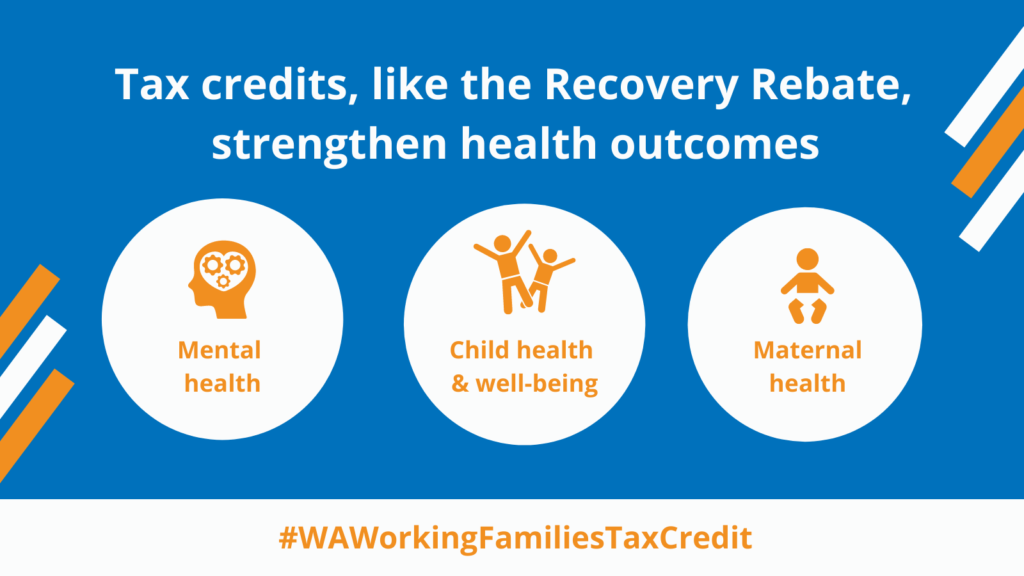No matter where we’re from or what our families look like, we should have the resources to purchase healthy food, pay rent, and cover the costs of basic needs. However, in Washington state, those who earn the least are paying more in taxes as a share of their income than the wealthiest – and that puts an additional strain on households already struggling to make ends meet. In addition, historical and present-day racism, like redlining and employment discrimination, has kept Black, Indigenous, and people of color (BIPOC) from access to wealth building and opportunity.
One critical way lawmakers can address this inequity this session is by enacting House Bill 1297, the Recovery Rebate/updated Working Families Tax Credit. This policy would put cash back in the pockets of those who most need it, including the households of 1 in 4 kids in Washington state. Not only will doing so make our tax code more equitable, but it will also support people’s health. In fact, new research builds on existing evidence that shows how tax credits are a tool for better health.
Past studies have already shown that the federal Earned Income Tax Credit (EITC), which the updated Working Families Tax Credit is modeled after, can set people on the path to better health through improved educational outcomes, increased housing stability, and fewer low birthweight babies – especially for Black mothers.

- Maternal Health: Parents and their newborns fare better when they can meet their material needs during and immediately after a pregnancy. We already knew the EITC and state expansions were linked to healthier pregnancies and newborns. This new research further shows how EITC expansions can support the mental health of new mothers.
- Child health and well-being: Strengthening a family’s economic security allows parents to create a healthier environment for their children and can mitigate the toxic stress that can lead to child maltreatment. Researchers at the Harborview Injury Prevention and Research Center found that an increase in state EITC benefits was linked to guardians being able to better care for their children. EITCs can also reduce the number of children entering foster care.
- Mental health: Because state EITCs help people meet their basic needs, more generous state EITCs such as the updated Working Families Tax Credit are also associated with decreased frequent mental distress and frequent poor physical health, with a larger impact for women. A Working Families Tax Credit can also reduce suicide attempts and suicide deaths. Researchers estimate a 10% state EITC expansion could prevent between 700 to 1,380 suicides each year.
More than ever, families are under enormous financial stress to meet their basic needs. This new research provides strong evidence for the significant physical and mental health impacts that tax credits like the Recovery Rebate would provide to children and their parents in Washington state. House Bill 1297 passed out of the House with unprecedented bipartisan support. Now it’s up to our Senators to ensure these benefits reach our state’s families by passing the updated Working Families Tax Credit.
